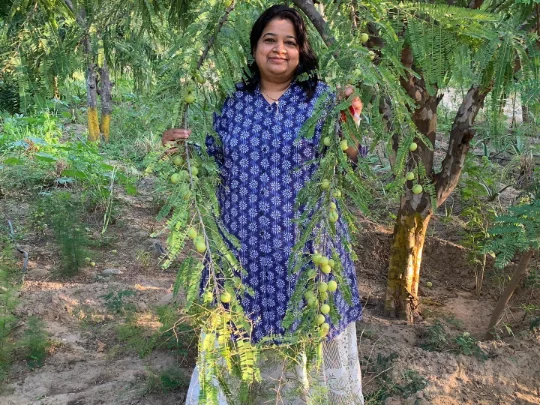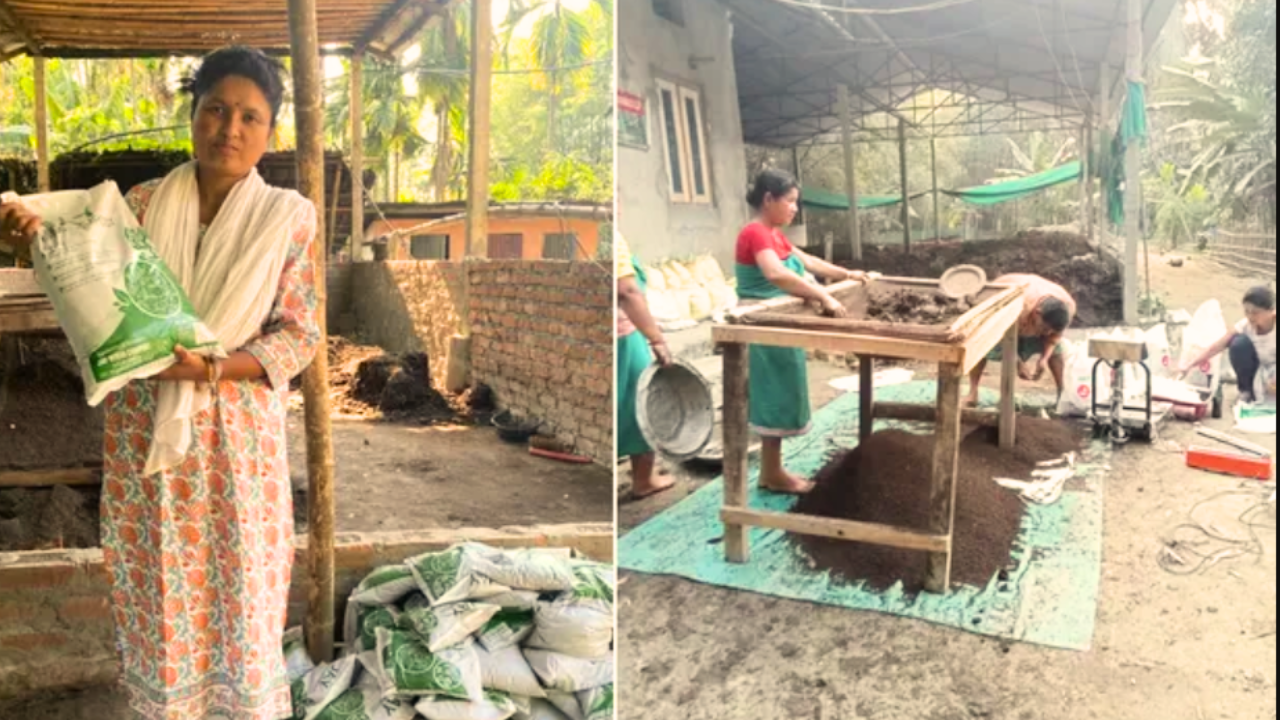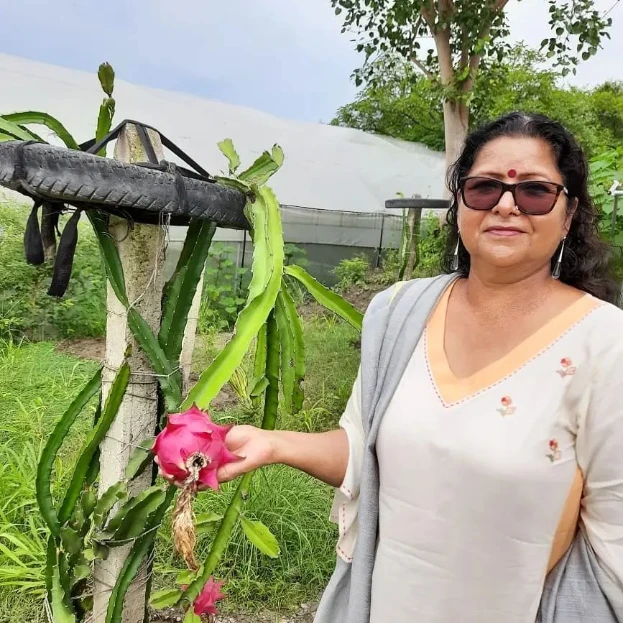Working at a big technology company in a bustling city is a dream for many people. However, this wasn’t the case for Roja Reddy. She grew up in a rural village called Donnehalli in Karnataka, and she had a deep passion for farming. Despite her family’s generations of farming background, they hoped she would find a high-paying job in the city instead of working on the land.
Following her family’s wishes, Roja pursued a Bachelor of Engineering (BE) degree and landed a job at a well-known company in Bengaluru. She continued her corporate work, putting her farming aspirations on hold. But everything changed when the COVID-19 pandemic struck in 2020.
With her company shifting to remote work, Roja returned home. Seizing the opportunity, she finally decided to give organic farming a shot.
“My dad and brother are full-time farmers, but due to significant losses, they were thinking of quitting. Even though they weren’t keen on me joining the farming, I wanted to make a difference. So, I took it as a challenge to rejuvenate our family farm using organic methods. After finishing my official work hours around 4 pm, I would head out to the fields,” Roja shares.
“My family wasn’t sure that I could restore the land using organic techniques. They had been relying on chemical fertilizers for years. Ironically, those chemicals were the main reason behind our declining farm yields. After a lot of determined effort, I managed to prove them wrong,” the 26-year-old explains.
Today, Roja has left her corporate job and embraced full-time farming. She cultivates organic vegetables on a vast expanse of 50 acres. She proudly states that she earns about Rs 1 crore in annual revenue now.
Switch to organic agriculture
Roja shares her journey of transitioning to organic farming in 2020. At the outset, her family, particularly her father and brother, were against her decision. Even her relatives and fellow villagers questioned her choice, wondering why she would switch to farming when she had a well-paying corporate job available.
According to Roja, the villagers believed that using chemical farming methods was the only way to achieve higher yields, although this turned out to be untrue. She grew up witnessing her grandfather practicing organic farming, but due to her father and brother’s prolonged use of chemicals, the soil quality had significantly deteriorated over time, resulting in reduced productivity.
On their family’s 20-acre farm in Donnehalli village, situated in the dry Chitradurga district, only six acres were utilized for cultivating pomegranates. The remaining land lay unused due to irrigation challenges.
In the initial stages of her farming journey, Roja faced mockery and skepticism from her relatives, fellow farmers, villagers, and even horticulture department officials for adopting organic techniques.
She took the initiative to thoroughly research organic farming online and reached out to other successful organic farmers for guidance. With their support, she managed to establish her own organic vegetable farm within a few months. At the start, she cultivated around 40 different types of vegetables, including beans, brinjals, and capsicum.
Roja also learned to create her own organic fertilizers and pesticides, such as jeevamrut, neemastra, and agniastra, to nurture her crops naturally.
Crafting her fortune
Roja’s incredible journey showcased that it’s possible to transform a chemically polluted land into a thriving organic farm. However, her biggest challenge came when she had to market her organic produce.
She admits, “I never thought marketing organic goods would be this difficult. Even though I reaped hundreds of kilos of vegetables, finding a market was a struggle.” The people in her village and neighboring areas were unfamiliar with organic farming and its benefits, leading to a lack of demand.
Roja took matters into her own hands and traveled to various places within her state to promote her produce. She formed a group of eight fellow organic farmers from Chitradurga and reached out to local authorities in different areas to secure spaces for market stalls. To spread awareness about organic vegetables, they even visited households and encouraged them to visit their weekly markets.
Over time, more organic farmers joined Roja’s network from all around the state. “Currently, I have about 500 farmers in my network across Karnataka. For a year, we’ve been setting up organic markets all over the state, even receiving substantial orders from cities like Bengaluru,” Roja shares. She established her own brand called Nisarga Native Farms and partnered with retail outlets in Bengaluru.
In just a year, Roja not only revitalized her family’s land into a flourishing organic farm but also created a market to sell her produce. Her determination convinced her family to support her passion, leading her to leave her corporate job and become a full-time farmer.
Roja also tackled the challenge of irrigation, especially since Chitradurga faces drought conditions. She points out, “Organic farming is advantageous because it uses less water compared to traditional methods. However, finding a practical irrigation solution was crucial.” Apart from utilizing three borewells on her property, Roja dug two ponds for rainwater harvesting and set up a drip irrigation system.
Being an organic farming pioneer in her village, Roja is now approached by fellow farmers, some of whom initially doubted her. She proudly states, “Around 25 farmers in my village have transitioned to organic farming under my guidance. I assist them in selling their produce directly in markets, eliminating middlemen and ensuring decent earnings.”
From originally cultivating six acres, Roja has expanded her farm to 50 acres. She cultivates around 20 varieties of vegetables, including tomatoes, beans, carrots, brinjal, ladies’ fingers, bottle gourds, bitter gourds, chillies, and cucumbers.
“I harvest between 500 kg to 700 kg of vegetables daily, making an annual income of approximately Rs 1 crore,” Roja shares. Additionally, her farm provides employment to about ten villagers.







